|
Everybodyís got an opinion. Iím just
compulsive enough to write about mine.
Dave Carter & Tracy Grammer: Drum
Hat Buddah (Signature
Sounds)
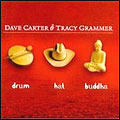 Dave Carter reveals an exceptional gift for the rhythms of language in superbly crafted songs that explore life and love in American
rural settings. In vocal harmonies with Carter and in her own solo
vocals, Tracy Grammerís direct, resonant alto is the match for her
own substantial violin accompaniments and explorations. A terrific CD for Whately, Massachusetts-based Signature Sounds.
Dave Carter reveals an exceptional gift for the rhythms of language in superbly crafted songs that explore life and love in American
rural settings. In vocal harmonies with Carter and in her own solo
vocals, Tracy Grammerís direct, resonant alto is the match for her
own substantial violin accompaniments and explorations. A terrific CD for Whately, Massachusetts-based Signature Sounds.
La Bottine Souriante: Cordial
(Mille-Pattes)
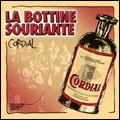 So near; so far. Quebecís greatest roots/jazz/joie de vivre band
excels jubilantly in its eleventh album, but how many among us have
heard La Bottine or even heard of them? So much for Nafta.
Until the early 1990s, La Bottine -- sans brass -- was known for highly
spirited traditional Celtic and French Canadian reels, jigs, gavottes,
waltzes -- you name it. Then the brass and some highly innovative jazz
arrangements arrived on the scene and endorphins in La Belle Province
have never been the same. This album features a crazy quilt of styles
from Arabesque-musette to boogie woogie to techno-folkloric sound
loops to traditional Celtic. Iím not sure whether these guys can
cure cancer, but next summer Iím going up to Montreal for my
hangnail.
So near; so far. Quebecís greatest roots/jazz/joie de vivre band
excels jubilantly in its eleventh album, but how many among us have
heard La Bottine or even heard of them? So much for Nafta.
Until the early 1990s, La Bottine -- sans brass -- was known for highly
spirited traditional Celtic and French Canadian reels, jigs, gavottes,
waltzes -- you name it. Then the brass and some highly innovative jazz
arrangements arrived on the scene and endorphins in La Belle Province
have never been the same. This album features a crazy quilt of styles
from Arabesque-musette to boogie woogie to techno-folkloric sound
loops to traditional Celtic. Iím not sure whether these guys can
cure cancer, but next summer Iím going up to Montreal for my
hangnail.
Keith Jarrett/Gary Peacock/Jack
Dejohnette: Inside Out
(ECM)
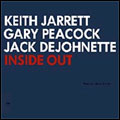 The album that many of us hoped Keith Jarrett would one day make. Inside
Out tempers the best of his free-spirited solo improvisational
impulses with his responsibilities toward his musical significant
others, bassist Gary Peacock and drummer Paul Motian. The results
verge on the telepathic and a truly organic balance between freedom
and restraint.
The album that many of us hoped Keith Jarrett would one day make. Inside
Out tempers the best of his free-spirited solo improvisational
impulses with his responsibilities toward his musical significant
others, bassist Gary Peacock and drummer Paul Motian. The results
verge on the telepathic and a truly organic balance between freedom
and restraint.
Eleftheria Arvanitaki:
Broadcast (Emarcy)
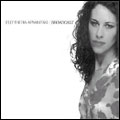 One of the true master vocalists of pan-Mediterranean art song,
Eleftheria is back with an innovative album of ten new vehicles that
demonstrate the extraordinary range and subtlety of her vocal
expressiveness. Six of the songs are by modern composers from her
native Greece; two are by her long-time American collaborator and
oudist, Ara Dinkjian. There is a dance-til-you-drop Afro Carribbean
confection augmented by hard-driving horns, and a fascinating duet
with neo-Fado vocalist Dulce Pontes. Several of the arrangements
suffer from an excess of New Age synthesizers, but the quality and
nuances of the songs and Eleftheriaís extraordinary musicianship
keep standards securely stratospheric.
One of the true master vocalists of pan-Mediterranean art song,
Eleftheria is back with an innovative album of ten new vehicles that
demonstrate the extraordinary range and subtlety of her vocal
expressiveness. Six of the songs are by modern composers from her
native Greece; two are by her long-time American collaborator and
oudist, Ara Dinkjian. There is a dance-til-you-drop Afro Carribbean
confection augmented by hard-driving horns, and a fascinating duet
with neo-Fado vocalist Dulce Pontes. Several of the arrangements
suffer from an excess of New Age synthesizers, but the quality and
nuances of the songs and Eleftheriaís extraordinary musicianship
keep standards securely stratospheric.
Kate Rusby: Little Lights
(Compass Records)
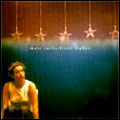 British roots music is in splendid hands and voice with Yorkshire folk
scion, Kate Rusby. Her impeccable vocal clarity and sweet-and-sour
delivery add poignancy to her predominantly melancholy themes,
including love lost, love unattainable, love unfaithful, economic
harshness, and mortality. Kateís husband and the albumís producer
and arranger, John McCusker (of the Battlefield Band), creates a
seamless fabric of fiddle, accordion, banjo, mandolin, and bass that
complement the albumís traditionalist objectives. Kate will play the
Iron Horse on April 17.
British roots music is in splendid hands and voice with Yorkshire folk
scion, Kate Rusby. Her impeccable vocal clarity and sweet-and-sour
delivery add poignancy to her predominantly melancholy themes,
including love lost, love unattainable, love unfaithful, economic
harshness, and mortality. Kateís husband and the albumís producer
and arranger, John McCusker (of the Battlefield Band), creates a
seamless fabric of fiddle, accordion, banjo, mandolin, and bass that
complement the albumís traditionalist objectives. Kate will play the
Iron Horse on April 17.
Baaba Maal: Missing You
(Palm Pictures)
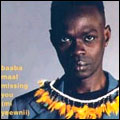 The Senegalese singer/sage returns to
his acoustic roots with eleven new songs of striking lyricism and
originality. Singing with characteristic Sahelian Islamic bite, Maalís
ecstatic voice ups the intensity by indefatigably penetrating through
the rich accompanying tableau of kora, balaphon, acoustic guitar,
percussion, and chorus. Itís a brilliant aesthetic that splendidly
serves Maalís mission of acknowledging the worldís challenges
while offering hopefulness, brotherhood, and spiritual nourishment. The Senegalese singer/sage returns to
his acoustic roots with eleven new songs of striking lyricism and
originality. Singing with characteristic Sahelian Islamic bite, Maalís
ecstatic voice ups the intensity by indefatigably penetrating through
the rich accompanying tableau of kora, balaphon, acoustic guitar,
percussion, and chorus. Itís a brilliant aesthetic that splendidly
serves Maalís mission of acknowledging the worldís challenges
while offering hopefulness, brotherhood, and spiritual nourishment.
Otis Taylor: White African (Northernblues
Music)
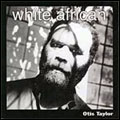 Not your feel-good blues outing.
Neo-country bluesman/antiquarian Otis Taylor sings with exceptional
power and intensity about Americaís racist skeletons-Jim Crow
justice, lynchings -- and of more universal themes of despair-failed
love relationships, infidelities, poverty, hunger. For lapsed
Unitarians, thereís Resurrection Blues, in which some
people have to suffer when they die, like Jesus did... But they donít
want to be Jesus. Big time baggage. But this is the blues of
exorcism. And Taylor consistently pulls it off, upping our awareness
while lightening our own collective load. Not your feel-good blues outing.
Neo-country bluesman/antiquarian Otis Taylor sings with exceptional
power and intensity about Americaís racist skeletons-Jim Crow
justice, lynchings -- and of more universal themes of despair-failed
love relationships, infidelities, poverty, hunger. For lapsed
Unitarians, thereís Resurrection Blues, in which some
people have to suffer when they die, like Jesus did... But they donít
want to be Jesus. Big time baggage. But this is the blues of
exorcism. And Taylor consistently pulls it off, upping our awareness
while lightening our own collective load.
The Blind Boys of Alabama: Spirit
of the Century (RealWorld)
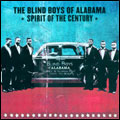 Theyíve been going strong since
1939, but never with a stripped-down virtuoso band like this one,
featuring John Hammond, David Lindley, Charlie Musselwhite, and
others. With those folks on board, the BB of A reconnect with an
unvarnished spiritual intensity that yields eight traditional
spirituals and four covers-two by Tom Waits, one by Ben Harper, and
one by Jagger and Richards. Who would have thought that Real Worldís
biggest success of 2001 would come from the exotic US of A? Theyíve been going strong since
1939, but never with a stripped-down virtuoso band like this one,
featuring John Hammond, David Lindley, Charlie Musselwhite, and
others. With those folks on board, the BB of A reconnect with an
unvarnished spiritual intensity that yields eight traditional
spirituals and four covers-two by Tom Waits, one by Ben Harper, and
one by Jagger and Richards. Who would have thought that Real Worldís
biggest success of 2001 would come from the exotic US of A?
Dave Holland Quintet: Not for
Nothiní (ECM)
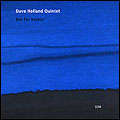 On its third album, the quintet
continues to shine as one of modern musicís most innovative
ensembles. Band leader and bassist extraordinaire Dave Hollandís
commanding pulse remains a powerful fulcrum for consistently creative
individual and collective improvisations by the rest of the quintet --
vibes, trombone, saxophones, and drums. The compositions
cover sweeping ground: quirky vamps, Middle Eastern and African brass
flavors, and traditional ballads. The quintet frequently brackets
solos with bridge harmonies -- a bow to big band traditions. And the
instruments engage in more than a few contrapuntal conversations. Just
when you think you know whatís coming next, the band will pull the
rug out from underneath you. In Not for Nothiní, you learn
early on to expect the unexpected. On its third album, the quintet
continues to shine as one of modern musicís most innovative
ensembles. Band leader and bassist extraordinaire Dave Hollandís
commanding pulse remains a powerful fulcrum for consistently creative
individual and collective improvisations by the rest of the quintet --
vibes, trombone, saxophones, and drums. The compositions
cover sweeping ground: quirky vamps, Middle Eastern and African brass
flavors, and traditional ballads. The quintet frequently brackets
solos with bridge harmonies -- a bow to big band traditions. And the
instruments engage in more than a few contrapuntal conversations. Just
when you think you know whatís coming next, the band will pull the
rug out from underneath you. In Not for Nothiní, you learn
early on to expect the unexpected.
Dave Douglas: Witness
(Bluebird)
 This paean to artists and others who
unwaveringly speak out on behalf of social justice exudes passion and
musicality. Donít expect comfort music; these are challenging, edgy
sonic statements that prove increasingly rewarding with repeated
listenings. Written for the largest ensemble (8-11 musicians) in
Douglasí recording career as a band leader, the compositions and
their larger purpose consistently yield musicianship of striking
commitment and originality. Douglas, who composed all nine of the
projectís tracks, has never played with greater intensity and
conviction. With tracks dedicated to Edward Said,
Naguib Mafouz, Taslima Nasrin, and
assorted prisoners/victims of conscience, inspiration apparently came
osmotically for Douglas and his forces. This paean to artists and others who
unwaveringly speak out on behalf of social justice exudes passion and
musicality. Donít expect comfort music; these are challenging, edgy
sonic statements that prove increasingly rewarding with repeated
listenings. Written for the largest ensemble (8-11 musicians) in
Douglasí recording career as a band leader, the compositions and
their larger purpose consistently yield musicianship of striking
commitment and originality. Douglas, who composed all nine of the
projectís tracks, has never played with greater intensity and
conviction. With tracks dedicated to Edward Said,
Naguib Mafouz, Taslima Nasrin, and
assorted prisoners/victims of conscience, inspiration apparently came
osmotically for Douglas and his forces.
Song/Performance of the Year
Rachel
- Buddy&
Julie Miller (Hightone)
When Julie Miller connects spiritually with a subject, her songs take
flight. Thatís my take on Rachel, ten songs into Julie and
Buddy Millerís new, outrageously titled CD, Buddy & Julie
Miller (Highspot). In the wrong place at the wrong time, Rachel --
a
seventeen year old of loving spirituality -- was the first of thirteen
gunned down in the unspeakable Columbine High School tragedy. Julieís
offering builds an unbreakable bridge of passion and conviction that
connects Rachelís spirituality, its ultimate immortality, and anyone
fortunate enough to hear the song. Meanwhile, her husband concocts an
upward-spiraling instrumental tapestry that overlays organ-like
harmonium chords with delicate trellis-like guitar fingerings. In Rachel,
the Millers have given us a modern-day hymn for the ages.
|
 Dave Carter reveals an exceptional gift for the rhythms of language in superbly crafted songs that explore life and love in American
rural settings. In vocal harmonies with Carter and in her own solo
vocals, Tracy Grammerís direct, resonant alto is the match for her
own substantial violin accompaniments and explorations. A terrific CD for Whately, Massachusetts-based Signature Sounds.
Dave Carter reveals an exceptional gift for the rhythms of language in superbly crafted songs that explore life and love in American
rural settings. In vocal harmonies with Carter and in her own solo
vocals, Tracy Grammerís direct, resonant alto is the match for her
own substantial violin accompaniments and explorations. A terrific CD for Whately, Massachusetts-based Signature Sounds. So near; so far. Quebecís greatest roots/jazz/joie de vivre band
excels jubilantly in its eleventh album, but how many among us have
heard La Bottine or even heard of them? So much for Nafta.
Until the early 1990s, La Bottine -- sans brass -- was known for highly
spirited traditional Celtic and French Canadian reels, jigs, gavottes,
waltzes -- you name it. Then the brass and some highly innovative jazz
arrangements arrived on the scene and endorphins in La Belle Province
have never been the same. This album features a crazy quilt of styles
from Arabesque-musette to boogie woogie to techno-folkloric sound
loops to traditional Celtic. Iím not sure whether these guys can
cure cancer, but next summer Iím going up to Montreal for my
hangnail.
So near; so far. Quebecís greatest roots/jazz/joie de vivre band
excels jubilantly in its eleventh album, but how many among us have
heard La Bottine or even heard of them? So much for Nafta.
Until the early 1990s, La Bottine -- sans brass -- was known for highly
spirited traditional Celtic and French Canadian reels, jigs, gavottes,
waltzes -- you name it. Then the brass and some highly innovative jazz
arrangements arrived on the scene and endorphins in La Belle Province
have never been the same. This album features a crazy quilt of styles
from Arabesque-musette to boogie woogie to techno-folkloric sound
loops to traditional Celtic. Iím not sure whether these guys can
cure cancer, but next summer Iím going up to Montreal for my
hangnail. The album that many of us hoped Keith Jarrett would one day make. Inside
Out tempers the best of his free-spirited solo improvisational
impulses with his responsibilities toward his musical significant
others, bassist Gary Peacock and drummer Paul Motian. The results
verge on the telepathic and a truly organic balance between freedom
and restraint.
The album that many of us hoped Keith Jarrett would one day make. Inside
Out tempers the best of his free-spirited solo improvisational
impulses with his responsibilities toward his musical significant
others, bassist Gary Peacock and drummer Paul Motian. The results
verge on the telepathic and a truly organic balance between freedom
and restraint. One of the true master vocalists of pan-Mediterranean art song,
Eleftheria is back with an innovative album of ten new vehicles that
demonstrate the extraordinary range and subtlety of her vocal
expressiveness. Six of the songs are by modern composers from her
native Greece; two are by her long-time American collaborator and
oudist, Ara Dinkjian. There is a dance-til-you-drop Afro Carribbean
confection augmented by hard-driving horns, and a fascinating duet
with neo-Fado vocalist Dulce Pontes. Several of the arrangements
suffer from an excess of New Age synthesizers, but the quality and
nuances of the songs and Eleftheriaís extraordinary musicianship
keep standards securely stratospheric.
One of the true master vocalists of pan-Mediterranean art song,
Eleftheria is back with an innovative album of ten new vehicles that
demonstrate the extraordinary range and subtlety of her vocal
expressiveness. Six of the songs are by modern composers from her
native Greece; two are by her long-time American collaborator and
oudist, Ara Dinkjian. There is a dance-til-you-drop Afro Carribbean
confection augmented by hard-driving horns, and a fascinating duet
with neo-Fado vocalist Dulce Pontes. Several of the arrangements
suffer from an excess of New Age synthesizers, but the quality and
nuances of the songs and Eleftheriaís extraordinary musicianship
keep standards securely stratospheric. British roots music is in splendid hands and voice with Yorkshire folk
scion, Kate Rusby. Her impeccable vocal clarity and sweet-and-sour
delivery add poignancy to her predominantly melancholy themes,
including love lost, love unattainable, love unfaithful, economic
harshness, and mortality. Kateís husband and the albumís producer
and arranger, John McCusker (of the Battlefield Band), creates a
seamless fabric of fiddle, accordion, banjo, mandolin, and bass that
complement the albumís traditionalist objectives. Kate will play the
Iron Horse on April 17.
British roots music is in splendid hands and voice with Yorkshire folk
scion, Kate Rusby. Her impeccable vocal clarity and sweet-and-sour
delivery add poignancy to her predominantly melancholy themes,
including love lost, love unattainable, love unfaithful, economic
harshness, and mortality. Kateís husband and the albumís producer
and arranger, John McCusker (of the Battlefield Band), creates a
seamless fabric of fiddle, accordion, banjo, mandolin, and bass that
complement the albumís traditionalist objectives. Kate will play the
Iron Horse on April 17. The Senegalese singer/sage returns to
his acoustic roots with eleven new songs of striking lyricism and
originality. Singing with characteristic Sahelian Islamic bite, Maalís
ecstatic voice ups the intensity by indefatigably penetrating through
the rich accompanying tableau of kora, balaphon, acoustic guitar,
percussion, and chorus. Itís a brilliant aesthetic that splendidly
serves Maalís mission of acknowledging the worldís challenges
while offering hopefulness, brotherhood, and spiritual nourishment.
The Senegalese singer/sage returns to
his acoustic roots with eleven new songs of striking lyricism and
originality. Singing with characteristic Sahelian Islamic bite, Maalís
ecstatic voice ups the intensity by indefatigably penetrating through
the rich accompanying tableau of kora, balaphon, acoustic guitar,
percussion, and chorus. Itís a brilliant aesthetic that splendidly
serves Maalís mission of acknowledging the worldís challenges
while offering hopefulness, brotherhood, and spiritual nourishment. Not your feel-good blues outing.
Neo-country bluesman/antiquarian Otis Taylor sings with exceptional
power and intensity about Americaís racist skeletons-Jim Crow
justice, lynchings -- and of more universal themes of despair-failed
love relationships, infidelities, poverty, hunger. For lapsed
Unitarians, thereís Resurrection Blues, in which some
people have to suffer when they die, like Jesus did... But they donít
want to be Jesus. Big time baggage. But this is the blues of
exorcism. And Taylor consistently pulls it off, upping our awareness
while lightening our own collective load.
Not your feel-good blues outing.
Neo-country bluesman/antiquarian Otis Taylor sings with exceptional
power and intensity about Americaís racist skeletons-Jim Crow
justice, lynchings -- and of more universal themes of despair-failed
love relationships, infidelities, poverty, hunger. For lapsed
Unitarians, thereís Resurrection Blues, in which some
people have to suffer when they die, like Jesus did... But they donít
want to be Jesus. Big time baggage. But this is the blues of
exorcism. And Taylor consistently pulls it off, upping our awareness
while lightening our own collective load. Theyíve been going strong since
1939, but never with a stripped-down virtuoso band like this one,
featuring John Hammond, David Lindley, Charlie Musselwhite, and
others. With those folks on board, the BB of A reconnect with an
unvarnished spiritual intensity that yields eight traditional
spirituals and four covers-two by Tom Waits, one by Ben Harper, and
one by Jagger and Richards. Who would have thought that Real Worldís
biggest success of 2001 would come from the exotic US of A?
Theyíve been going strong since
1939, but never with a stripped-down virtuoso band like this one,
featuring John Hammond, David Lindley, Charlie Musselwhite, and
others. With those folks on board, the BB of A reconnect with an
unvarnished spiritual intensity that yields eight traditional
spirituals and four covers-two by Tom Waits, one by Ben Harper, and
one by Jagger and Richards. Who would have thought that Real Worldís
biggest success of 2001 would come from the exotic US of A? On its third album, the quintet
continues to shine as one of modern musicís most innovative
ensembles. Band leader and bassist extraordinaire Dave Hollandís
commanding pulse remains a powerful fulcrum for consistently creative
individual and collective improvisations by the rest of the quintet --
vibes, trombone, saxophones, and drums. The compositions
cover sweeping ground: quirky vamps, Middle Eastern and African brass
flavors, and traditional ballads. The quintet frequently brackets
solos with bridge harmonies -- a bow to big band traditions. And the
instruments engage in more than a few contrapuntal conversations. Just
when you think you know whatís coming next, the band will pull the
rug out from underneath you. In Not for Nothiní, you learn
early on to expect the unexpected.
On its third album, the quintet
continues to shine as one of modern musicís most innovative
ensembles. Band leader and bassist extraordinaire Dave Hollandís
commanding pulse remains a powerful fulcrum for consistently creative
individual and collective improvisations by the rest of the quintet --
vibes, trombone, saxophones, and drums. The compositions
cover sweeping ground: quirky vamps, Middle Eastern and African brass
flavors, and traditional ballads. The quintet frequently brackets
solos with bridge harmonies -- a bow to big band traditions. And the
instruments engage in more than a few contrapuntal conversations. Just
when you think you know whatís coming next, the band will pull the
rug out from underneath you. In Not for Nothiní, you learn
early on to expect the unexpected. This paean to artists and others who
unwaveringly speak out on behalf of social justice exudes passion and
musicality. Donít expect comfort music; these are challenging, edgy
sonic statements that prove increasingly rewarding with repeated
listenings. Written for the largest ensemble (8-11 musicians) in
Douglasí recording career as a band leader, the compositions and
their larger purpose consistently yield musicianship of striking
commitment and originality. Douglas, who composed all nine of the
projectís tracks, has never played with greater intensity and
conviction. With tracks dedicated to Edward Said,
Naguib Mafouz, Taslima Nasrin, and
assorted prisoners/victims of conscience, inspiration apparently came
osmotically for Douglas and his forces.
This paean to artists and others who
unwaveringly speak out on behalf of social justice exudes passion and
musicality. Donít expect comfort music; these are challenging, edgy
sonic statements that prove increasingly rewarding with repeated
listenings. Written for the largest ensemble (8-11 musicians) in
Douglasí recording career as a band leader, the compositions and
their larger purpose consistently yield musicianship of striking
commitment and originality. Douglas, who composed all nine of the
projectís tracks, has never played with greater intensity and
conviction. With tracks dedicated to Edward Said,
Naguib Mafouz, Taslima Nasrin, and
assorted prisoners/victims of conscience, inspiration apparently came
osmotically for Douglas and his forces.